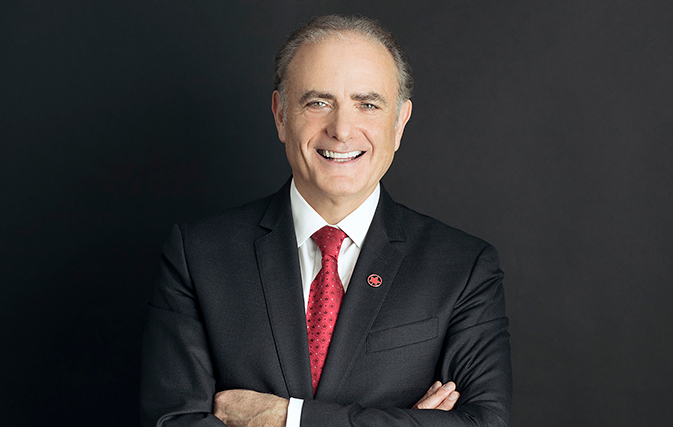TORONTO — While Transat A.T. has begun a process that could lead to its sale, Air Canada President and CEO Calin Rovinescu did not want to say Monday whether he could be interested in the Quebec tour operator.
Asked by an analyst about acquisition opportunities in Canada and abroad in a conference call to discuss first quarter results, Rovinescu avoided answering the question directly. “We will continue with our business plan,” he said, adding, “that’s what brought us this far.”
Since Air Transat’s parent company announced last week that it was talking to more than one potential buyer, the names of Air Canada and WestJet were mentioned by observers alongside foreign players like TUI as well as private investment funds.
In the event of an Air Canada offer, the Competition Bureau could block a possible transaction, given that its Rouge subsidiary is already competing with the Quebec tour operator in the sun destinations segment as well as in certain transatlantic markets.
Rovinescu also took advantage of his speech to the shareholders at the annual meeting that was taking place in Toronto to praise the qualities and contribution of its low-cost carrier.
“Rouge has been enormously successful and as we look to the future, (Rouge) will remain a fundamental part of our transformation,” he said.
In the first quarter, when Air Canada had to stop using its Boeing 737 Max, the company earned net income of $345 million, or $1.26 per share, compared to a net loss of $ 203 million or 74 cents a share, at the same time a year ago. “The impact on our costs is expected to increase in the busy summer period,” said Air Canada Chief Financial Officer Michael Rousseau. He mentioned a 3 – 4% reduction in the number of seats available since the Boeing 737 Max, implicated in two deadly crashes, was grounded. In the first quarter Air Canada cancelled 8,000 flights, including 1,600 on its higher-revenue routes.
The 24 Max 8s account for approximately 20% of Air Canada’s fleet of narrow-body aircraft. The removal of these aircraft pushed up adjusted operating costs per seat mile by 3.2%.
Rovinescu said he will wait for more “clarity” before looking at the financial forecasts, which were suspended on March 15, two days after Transport Canada closed the Canadian airspace at Max 737. He added that the airline will consider bringing the aircraft back into service when organizations such as Transport Canada and the US Federal Aviation Administration lift the flight bans and give the green light to the training and software modification protocols.
